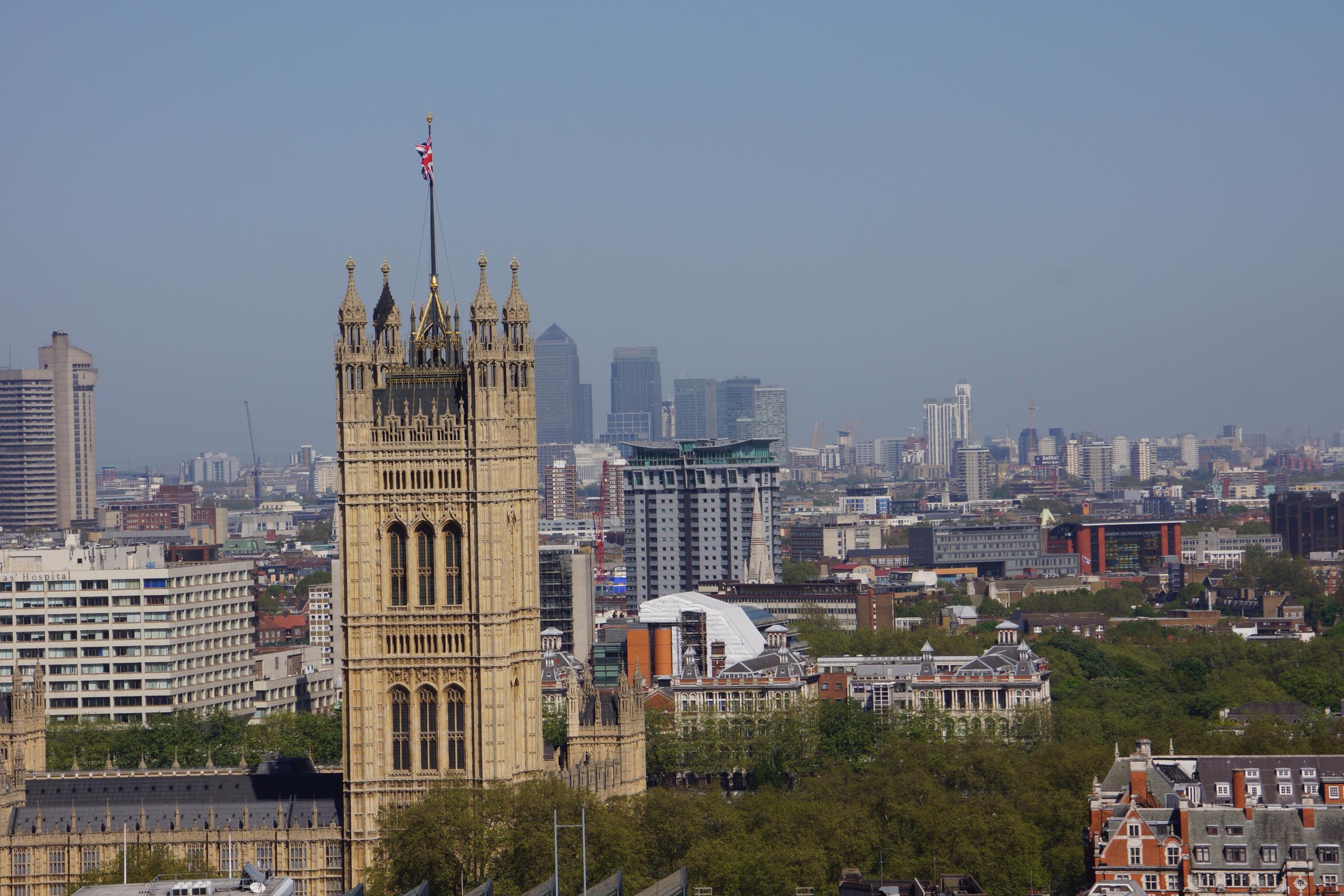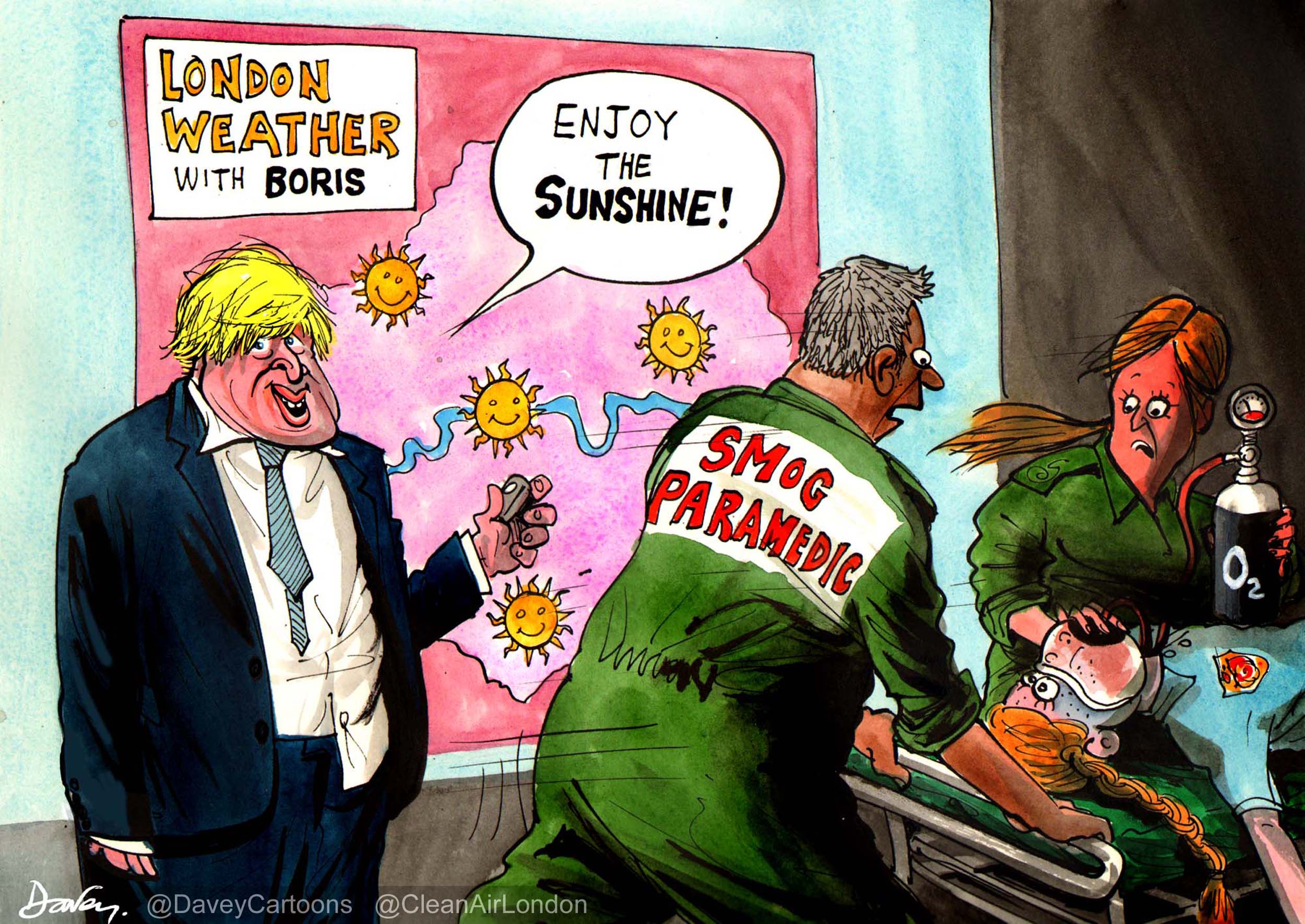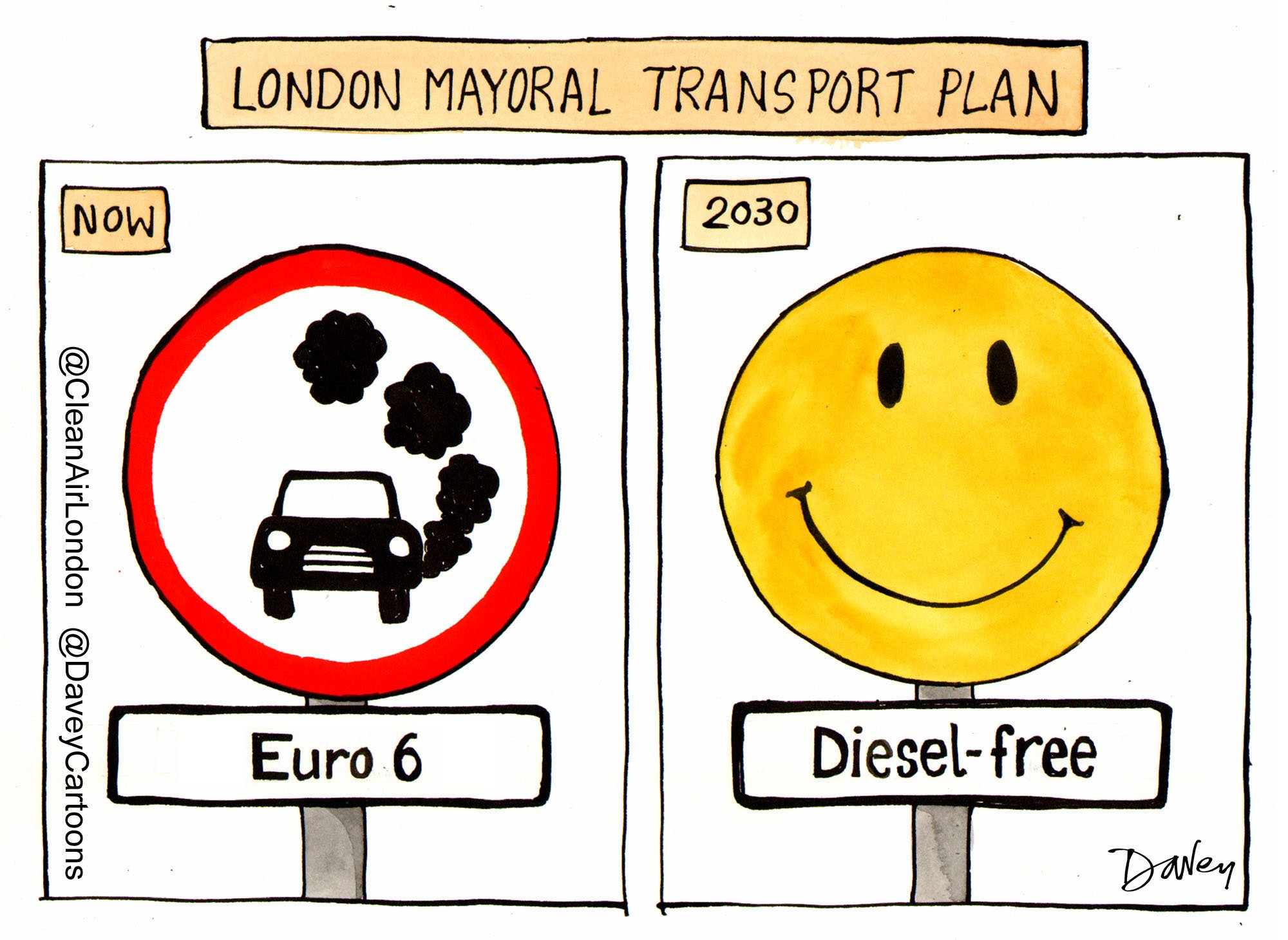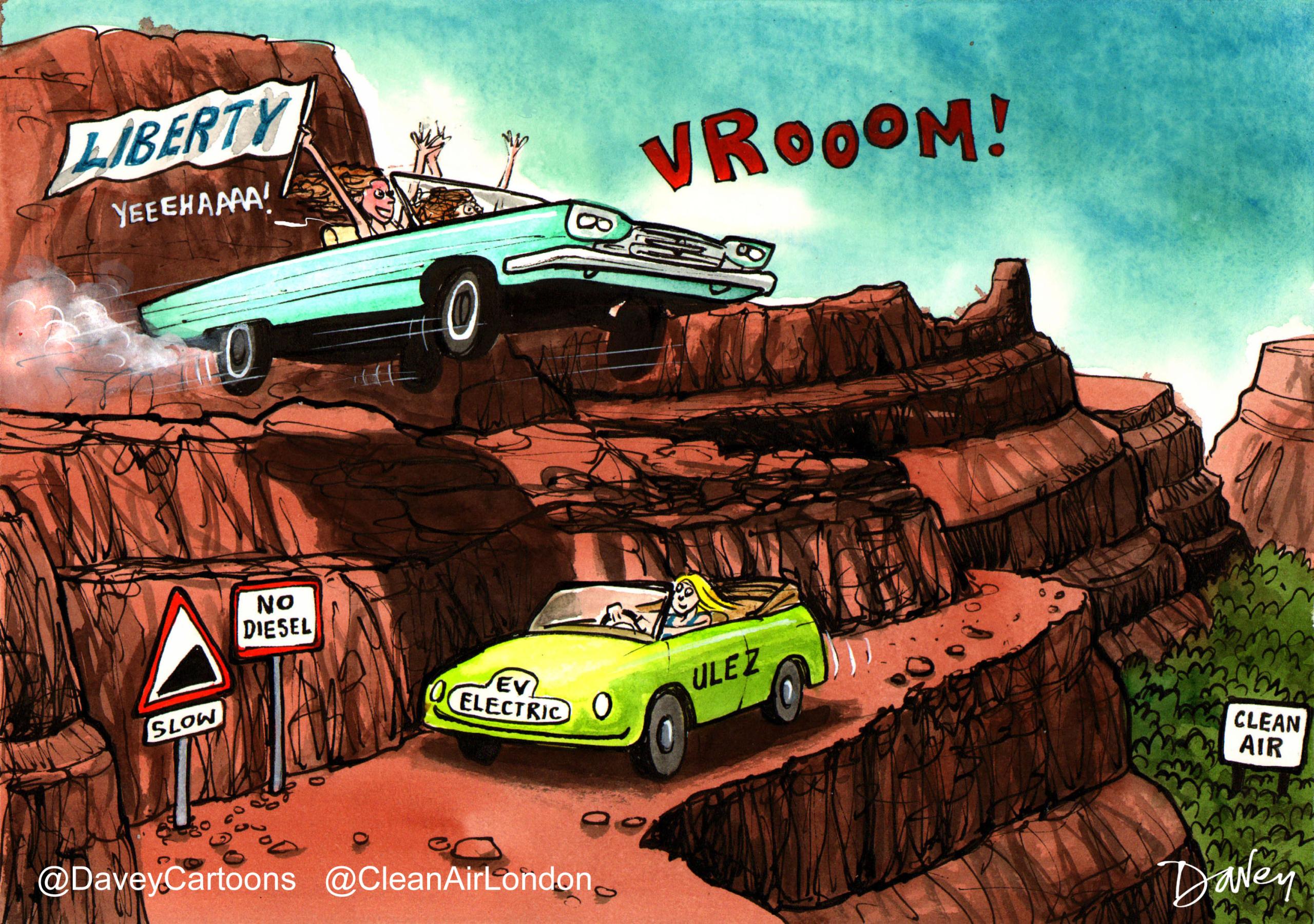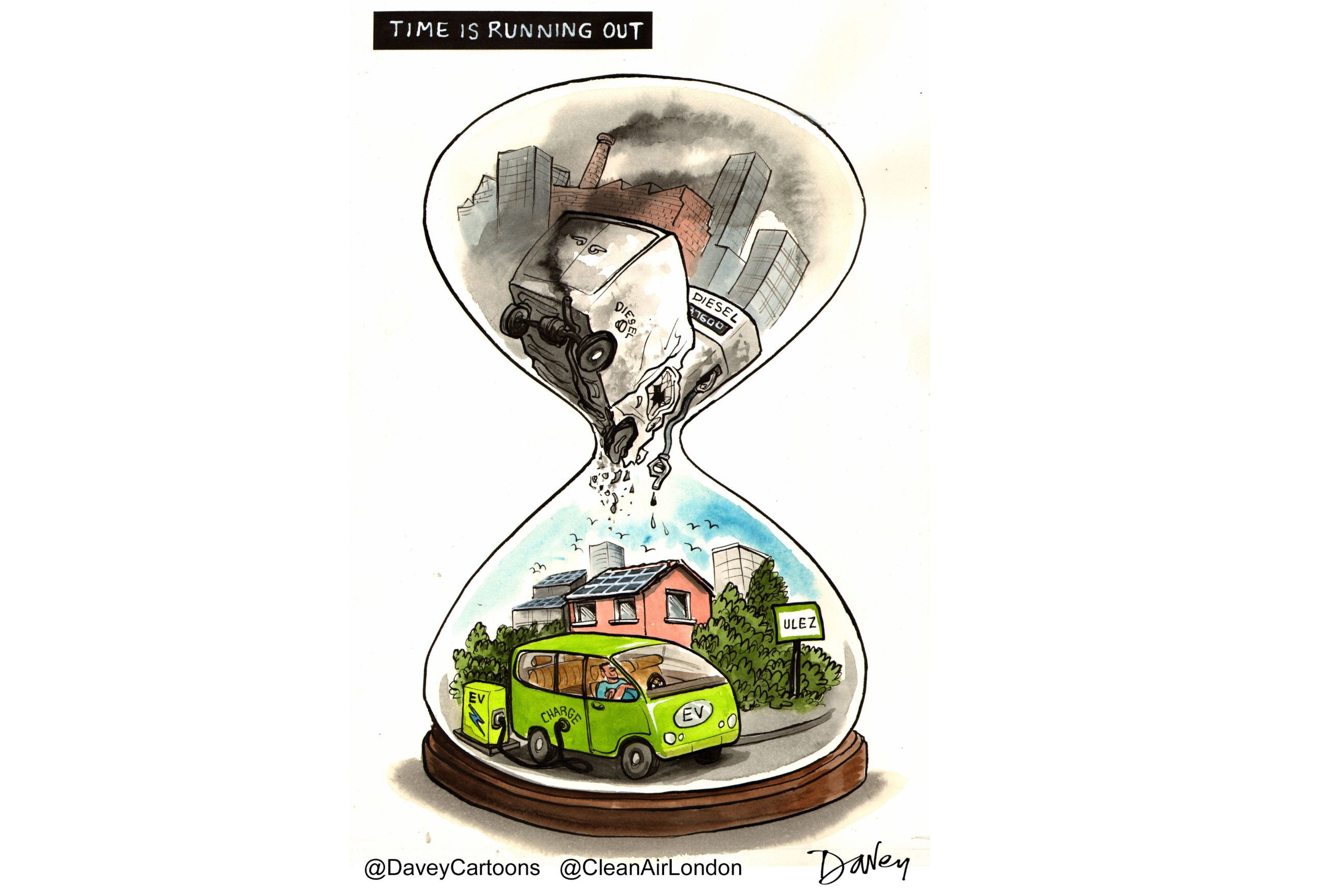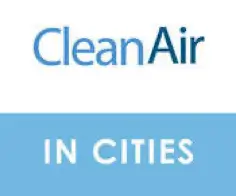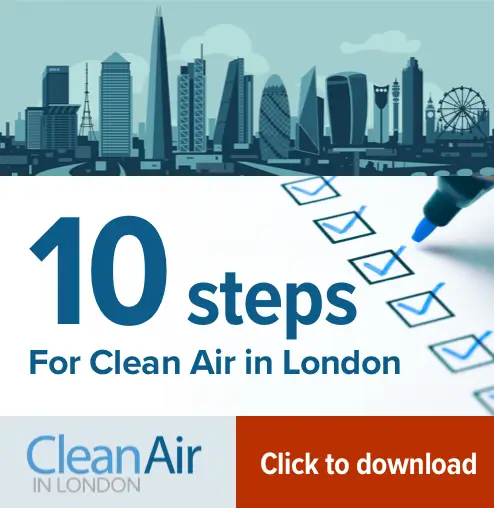Boris Johnson
Mayor of London and Chair of Transport for London
Transport for London
12th Floor Windsor House
42-50 Victoria Street
London SW1H 0TL
Taxi and PHV Licensing Inspection Consultation
Public Carriage Office (PCO)
15 Penton Street
Islington
London N1 9PU
By email: [email protected] and [email protected]
18 October 2008
Dear Mayor Johnson and the PCO,
Consultation on Taxi and Private Hire Vehicle licensing inspections
‘Encourage’ taxi drivers to reduce harmful emissions from Taxis and PHVs
This response to Transport for London’s (TfL’s) public Consultation on Future Arrangements for Taxi and Private Hire Vehicle (PHV) Licensing Inspections, which is due to close on 24 October 2008, is sent on behalf of the Campaign for Clean Air in London (CCAL). Refer to:
http://www.tfl.gov.uk/businessandpartners/taxisandprivatehire/8832.aspx
Taxis are the most polluting form of road traffic in Central London
According to the London Atmospheric Emissions Inventory 2003 (LAEI), taxis are forecast to contribute some 36.5% of particulate matter (PM10) and 24.6% of nitrogen oxides (NOx) from road traffic in Central London in 2010. See pages 78 and 79 of the relevant report:
http://static.london.gov.uk/mayor/environment/air_quality/research/emissions-inventory.jsp
Page 4 of the same report makes clear that road traffic is forecast to be the major source of NOx (36%) and PM10 (65%) emissions in the LAEI area in 2010. This means that taxis are the most polluting sub-category of the most polluting emissions category in London.
The consultation document states that only 62% of vehicles passed first time the taxi mid-year inspections in the first six months since their introduction in October 2007. Vehicles failed for a variety of reasons, primarily due to emissions test and vehicle suspension systems, with a wide variety of other causes. CCAL understands that 2,389 taxis failed pollution tests and 513 had brake problems in the past year.
This means that taxis have been contributing unnecessarily to pollution levels in London. CCAL considers therefore that the proposal to abolish or weaken the current regime of taxi mid-year inspections cannot be justified on the basis of the facts or proposals presented by TfL. CCAL urges Mayor Johnson and the PCO instead to strengthen, rather than weaken, emission control measures for London’s Taxis and PHVs.
The Mayor has a duty to ‘work towards’ Limit Values
The Mayor of London has a statutory duty to ‘work towards’ the Limit Values for particulate matter (PM10) and nitrogen dioxide (NO2). In CCAL’s view, Mayor Johnson would breach this statutory duty if taxi mid-year inspections were removed without fully, directly and robust offsetting measures being in full operation. CCAL notes that no such measures are currently proposed.
Principles to adopt in reducing pollution from Taxis and PHVs
CCAL considers that the following principles should be considered as a package as Mayor Johnson and the PCO consider how best to deliver a sharp reduction in harmful emissions from Taxis and PHVs.
1. Taxis and PHVs provide a vital service: Please take full account of the importance of the public service provided by Taxis and PHVs.
2. The polluter must pay: The polluter must pay the full environmental cost of his/her actions. In this case, the polluter is the user of the service i.e. the passenger. Please raise fares therefore to cover the cost of necessary action to reduce sharply harmful emissions from Taxis and PHVs. CCAL would support fare rises to compensate fully operators for the ‘opportunity cost’ of a Taxi or PHV being off the road for testing.
3. Euro IV or better: Taxis should be required to meet no less than Euro IV engine emissions standards for particulate matter and NOx by the earliest possible time. Euro IV engine emission standards are, in general, half as polluting as the current Euro III engine emission standards. CCAL encourages the government (copied) to offer massive incentives to accelerate the adoption, at least, of such standards by 2010. Low emission taxis would presumably exceed such standards.
4. PHVs must meet or exceed Taxi emission standards in the most polluted areas: All PHVs carrying fare paying passengers in the most polluted parts of London should be required at least to match the highest emissions standards applying to Taxis e.g. currently Euro III or better. This could be implemented through the use of colour- coded stickers with one colour allowing say London-wide access for PHVs and another prohibiting the most polluting PHVs from the most polluted parts of London. CCAL would support measures to ban older diesel-engined PHV’s from the most polluted parts of Central London.
5. Apply Taxi testing standards to PHVs: PHVs should be subject to mid-year, full year and spot check inspections in the same way that Taxis are. These should replace MOT only inspections. They should be set at the ‘higher emissions standards’ applicable to either.
6. Effective enforcement is essential: Effective enforcement must play an important part in regulating Taxis and PHV. In CCAL’s view, TfL’s facts show that taxi mid-year inspections are currently essential. If first time pass rates for taxi mid-year, full year and spot check inspections indicate in future that there is a very high level of day to day compliance with emission standards (say 90-95%), CCAL would support then a trial of reverting to annual inspections.
7. Systemic solutions: Such a low first time pass rate indicates that there is likely to be a systemic problem with compliance with emissions standards. What is the cause of this serious problem and what will be done about it and when? With Taxi and PHV drivers amongst the most exposed to harmful air pollution, the majority of them should welcome (at least in private) tighter emission standards paid for (rightly) by their passengers. A systemic problem must be addressed through systemic action.
8. Taxi Emissions Strategy: It is essential that an ambitious new Taxi Emissions
Strategy is put in place within weeks to succeed that which expired on 30 June 2008.
http://www.tfl.gov.uk/businessandpartners/taxisandprivatehire/1392.aspx
In CCAL’s view it is essential that measures are included within this Strategy that take account fully of the need to comply with air quality laws. Such a Strategy should address fully all the principles outlined above.
Response to Consultation Options
These responses must be considered in conjunction with the rest of this submission.
In respect of the current, narrow, consultation Options, CCAL has the following responses.
Option 1 Oppose.
By TfL’s own admission this Option could result in ‘higher levels of pollution’ [from the most polluting form of road traffic in the most polluted areas] with no effective offsetting mechanism(s) proposed
Option 2 Oppose.
The positive and negative incentives proposed would not necessarily ensure that ‘vehicles are well maintained at all times’ as TfL suggests. Rather they may simply encourage unofficial checks immediately before formal testing!
Option 3 Oppose.
As TfL states, ‘vehicle age is not necessarily an indicator of the standard of maintenance or state of repair’.
None of the above Options seems likely to achieve the third of the main aims of the consultation i.e. ‘To simplify arrangements and reduce the administrative burden on owners without compromising safety standards or reducing the overall condition of licensed vehicles throughout the annual licensing cycle’.
CCAL considers that the consultation is biased towards removing mid-year inspections since all Options put forward would represent a weakening of the current regime and none would tighten the existing regime as seems needed.
CCAL considers that TfL’s consultation is set too narrowly to consider just the need to ‘allow TfL to cover its costs and safeguard London’s travelling public’. What about the health of hundreds of thousands of Londoners who are exposed to levels of air pollution that are well in excess of the maximum levels recommended by the World Health Organisation?
CCAL is concerned that Mayor Johnson does not seem to appreciate yet the scale and urgency of the action he needs to take if air quality laws are to be complied with in London. CCAL would be pleased therefore to meet Mayor Johnson and/or his advisers to discuss these proposals as proposed in his letter dated 31 July 2008.
Please confirm receipt of this letter.
With best wishes.
Yours sincerely
Simon Birkett
Principal Contact
Campaign for Clean Air in London
By hand:
Winston Fletcher, Chair, The Knightsbridge Association
Carol Seymour-Newton, Honorary Secretary, The Knightsbridge Association
Cc:
The Rt. Hon. Hilary Benn MP, Secretary of State for Environment, Food and Rural
Affairs
The Rt. Geoff Hoon MP, Secretary of State for Transport
Lord Hunt, Minister for Air Quality Sir Simon Milton, Deputy Mayor
ORGANISATIONS
Helen Ainsworth, EU and International Air Quality, Defra
Jenny Bates, London Regional Campaigns Co-ordinator, Friends of the Earth
Patricia Brown, Chief Executive, Central London Partnership
Simon Davies, Department for Transport
Nick Fairholm, Transport for London
Tim Hockney, Executive Director, London First
Professor Frank Kelly, Kings College London
Sarah Legge, GLA Principal Policy Adviser – Air Quality
Blake Ludwig, Campaign Director, Alliance Against Urban 4x4s
Professor Bob Maynard, Health Protection Agency
Philip Mulligan, Chief Executive, Environmental Protection UK
Derek Picot, Chairman, The Knightsbridge Business Group
Dragomira Raeva, EU Policy Unit, European Environmental Bureau
Dr Martin Williams, Head of Air Quality and Industrial Pollution Programme, Defra
Tim Williamson, National Air Quality Assessment, Defra
LEADING POLITICIANS
John Bowis MEP, Conservative Jean Lambert MEP, Green
Baroness Ludford MEP, Liberal Democrat
Claude Moraes MEP, Labour
Richard Barnes AM, Statutory Deputy Mayor and Leader of the Conservative Group
Len Duvall AM, Leader of the Labour Group, London Assembly
Darren Johnson AM, Green, Chair of the Transport and Environment Committee
Mike Tuffrey AM, Leader of the Liberal Democrat Group, London Assembly
Valerie Shawcross AM, Chair of the Transport Committee, London Assembly
Councillor Colin Barrow, Leader of the Council, City of Westminster
Councillor Merrick Cockell, Leader of Kensington and Chelsea Council

